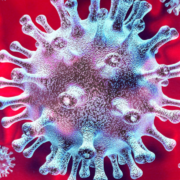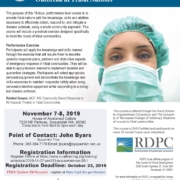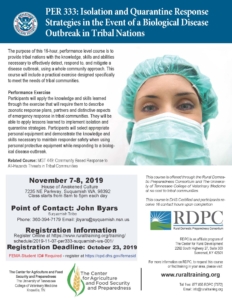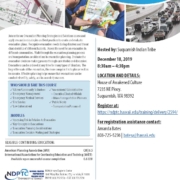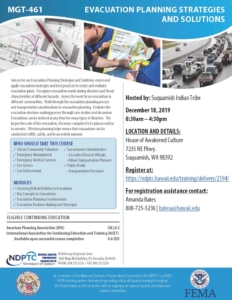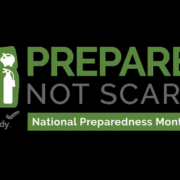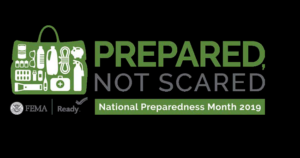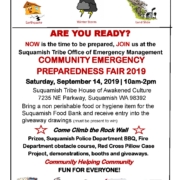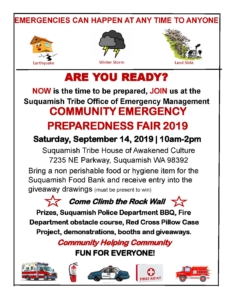Dear Tribal Citizens:
The Suquamish Tribal Council and Tribal government staff would like to take this opportunity to inform you of our efforts to minimize the impacts of COVID-19 coronavirus. We understand that our Tribal community is concerned, as we are, and want to protect our most vulnerable population: Elders and those with underlying health conditions. This is an evolving situation, and we are monitoring information provided by federal, state and local governments, and by our own health experts.
As you know, health officials are suggesting that government and businesses consider cancelling non-essential gatherings and meetings.
In light of this unprecedented situation and potential health risks, the Tribal Council has made the following decisions regarding upcoming Tribal gatherings:
- The General Council meeting will be limited to one day, Sunday, March 15, 2020 at Kiana Lodge. This Monday, Tribal Council will approve a modified agenda for our Sunday General Council meeting. This agenda will include elections and reports (as required by our constitution) with the intention of reducing exposure. The Saturday session, including the Elders meeting, will not be held.
- There will be no childcare provided during the Sunday meeting.
- The Elders Cruise to Mexico will be postponed.
- A Time to Gather, the Suquamish Foundation’s annual fundraising dinner, will be postponed.
- All other non-essential travel and events are now under review.
Please access the Tribe’s Facebook page for the most immediate updates.
Please continue to follow precautions in your everyday lives, including frequent hand-washing, wiping down common surfaces and staying home if you are sick.
If you have questions regarding the best way to protect your health, please contact:
Nehreen Ayub – (206) 920-0748 / nayub@suquamish.nsn.us
Barbara Hoffman – (360) 394-8468 / bhoffman@suquamish.nsn.us
If you have questions about event management, such as General Council, please contact Rebecca Purser (360-394-8406 / rebeccapurser@suquamish.nsn.us) or a Council member.
The Suquamish Tribe has withstood many challenges since first contact over 200 years ago and we are confident that we can manage this threat successfully by being unified, informed and appropriately decisive.
Respectfully,
Leonard Forsman, Chairman
Wayne George, Vice Chairman
Nigel Lawrence, Secretary
Robin Sigo, Treasurer
Rich Purser, Councilmember
Jay Mills, Councilmember
Sammy Mabe, Councilmember



